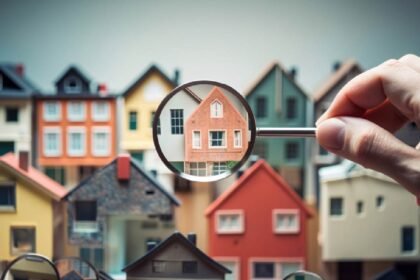Every tenant has the right to live in a safe and healthy home. When your rental property falls below acceptable standards, it’s important to know that the law is on your side. Whether you’re dealing with broken heating, structural damage, or issues that could lead to a fire, you should never feel forced to stay in unsafe living conditions. For example, in certain situations, proper Fire Door Installation London is essential to meet legal fire safety requirements and protect tenants in multi-occupancy buildings.
In this blog, we will explain what counts as unsafe living conditions, outline your rights as a tenant, and help you understand the actions you can take if your landlord fails to maintain the property.
What Is Meant by Unsafe Living Conditions?
Unsafe living conditions refer to hazards that can harm your physical health or mental well-being. These conditions can develop due to poor maintenance, lack of repairs, or neglect by the landlord. Common problems include serious damp or mould, faulty electrics, leaking roofs, broken boilers, pest infestations, or anything else that makes it difficult or dangerous to live in your home.
Unsafe conditions also cover issues that increase the risk of fire or injury, such as blocked fire exits, missing smoke alarms, and damaged flooring. The standard for safety is not just about comfort—it is about your legal right to live in a home that is fit for human habitation.
Your Legal Rights as a Tenant
Tenants in the UK are protected by various housing laws that make it clear what landlords must provide. One of the most important is the Homes (Fitness for Human Habitation) Act 2018, which states that all rental properties must be fit to live in at the beginning of the tenancy and remain so throughout.
This means your home must:
- Be structurally sound
- Have safe access to essential services like water, gas, and electricity
- Be free from serious damp and mould
- Have proper ventilation, heating, and lighting
- Not pose any risk to your health or safety
If a property fails to meet these standards, tenants can take legal action against their landlord. This can include requesting repairs through the courts or seeking compensation for any harm or inconvenience suffered.
The Landlord’s Responsibility for Property Safety
Your landlord is responsible for keeping the property in good repair and ensuring it is safe. This includes maintaining the structure and exterior of the building, ensuring water and heating systems work properly, and making sure any electrical or gas appliances they provide are safe to use.
Fire safety is also a major part of a landlord’s duties. In flats and houses in multiple occupation (HMOs), fire alarms, emergency lighting, and fire doors may be legally required. If your building doesn’t meet these fire safety standards, it could put you and your neighbours at serious risk. A landlord who fails to provide basic fire precautions could be in breach of legal housing regulations.
Recognising the Signs of Unsafe Conditions
Sometimes the signs of unsafe living conditions are obvious—like a leaking ceiling, faulty wiring, or no working boiler during winter. In other cases, the warning signs might be less clear. Mould on the walls, a strange smell from a gas appliance, or unusually high humidity could point to larger underlying problems.
You should also be alert to signs that fire safety regulations are not being followed. If your building lacks clear emergency exits, working smoke detectors, or properly fitted fire doors, this could create serious danger in the event of a fire.
How to Report Unsafe Conditions
The first step when you notice a problem is to contact your landlord or letting agent in writing. This creates a clear record of your complaint. In your message, describe the issue in detail, explain how it is affecting you, and ask for a specific repair or inspection.
It is important to give your landlord a reasonable amount of time to respond and carry out the necessary work. In most cases, they are expected to make repairs within a reasonable timeframe depending on the severity of the issue.
If your landlord does not respond or refuses to make the repairs, you should contact your local council’s environmental health department. They can inspect the property and issue a formal notice to the landlord requiring them to make improvements.
Taking Further Action if the Problem Continues
If your landlord continues to ignore your complaints and the council finds serious safety issues, legal enforcement can follow. The council may serve a repair notice, carry out the work themselves and charge the landlord, or in severe cases, take legal action.
You can also apply to the court under the Homes (Fitness for Human Habitation) Act 2018. The court can order your landlord to make repairs or award compensation for any suffering or inconvenience caused.
However, tenants should be cautious about withholding rent, even if conditions are bad. Doing so could put you at risk of eviction unless you follow strict legal procedures. It’s best to get professional advice before taking this step.
If you want more detailed guidance, the UK government provides useful information for tenants on how to deal with repairs and unsafe housing.
What to Do to Protect Yourself
Living in unsafe conditions can take a toll on your health, comfort, and peace of mind. That’s why it’s so important to act quickly and document everything. Take photos of the problem areas, keep copies of all communication with your landlord, and make notes about how the issue is affecting your daily life.
If your landlord fails to act, don’t hesitate to involve the local council. They have the authority to force landlords to meet their legal responsibilities and ensure tenants are living in safe homes.
Conclusion
Understanding your rights as a tenant is key to protecting yourself when you’re faced with unsafe living conditions. The law is clear—your landlord must keep the property safe and fit for you to live in. If they fail to do so, you are not powerless. You have the right to speak up, seek help, and take legal steps when necessary.
Whether it’s making sure fire regulations are followed through measures like Fire Door Installation London or ensuring the heating system works during winter, your safety comes first. Knowing what’s expected from landlords—and what you can do if they fail—can help you take control and improve your living situation. If you want to stay updated with posts like this, please follow us on Timely Magazine.








